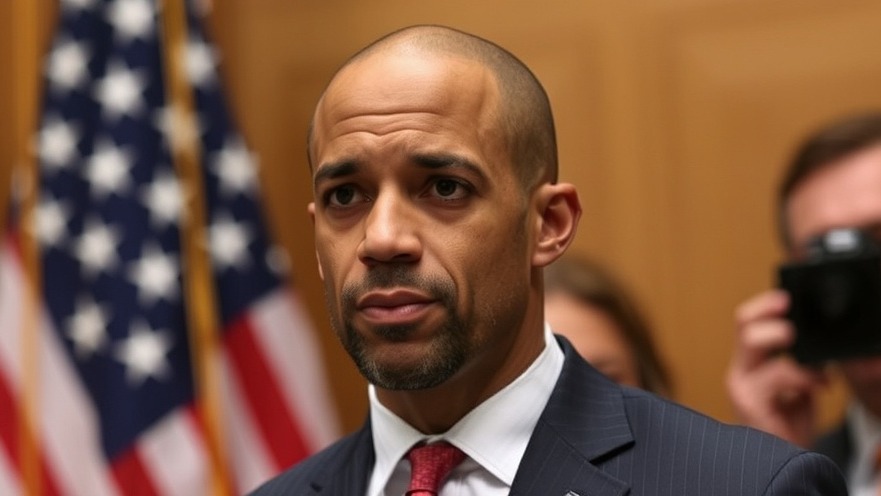
The Unfolding Scandal: Jay Jones’ Controversial Texts
The recent revelations about Jay Jones, a candidate for Attorney General in Virginia, have stirred significant controversy among voters and political leaders alike. Text messages that surfaced depicting Jones fantasizing about the murder of a former GOP leader have prompted calls for his immediate withdrawal from the race. The incident has not only ignited a firestorm in Virginia but has brought national attention to the implications of political accountability and the silence surrounding outrageous conduct from members of any party.
Political Silence: A Party Divided?
Senator Eric Schmitt, a Republican from Missouri, expressed anger and disappointment at the silence of many Democratic leaders regarding Jones' texts. In an interview, he referred to the situation as “sickening,” noting that such a call for violence should have prompted an immediate response from those in power. Yet, notably absent from the discourse is a firm stance from prominent Democrats like Senators Tim Kaine and Mark Warner. This inaction raises questions about party loyalty versus accountability and the message it sends to constituents who may feel their safety is at stake.
Law Enforcement Steps In: Sheriffs Demand Action
The Virginia Law Enforcement Sheriffs' Association, representing 86 sheriffs across the state, has formally requested that Jones withdraw his candidacy. Their involvement underscores the gravity of the situation and the collective concern about the integrity of law enforcement leadership. In their letter, they articulate a strong message: violence and threats of violence are unacceptable, and public officials must be held to a higher standard, reflecting the values they are expected to uphold.
The Broader Implications: Shaping Public Perception
This incident has broader implications beyond Virginia politics. It reflects a national narrative where political figures can face scrutiny not just for their policies but for their behavior. The reaction, or lack thereof, from fellow party members can influence how the public perceives not only the candidates but also the parties themselves. Schmitt's critique of Democrats for their silence serves as a reminder that in high-stakes politics, accountability must extend to all corners, irrespective of party affiliation.
Public Outrage: What Do Voters Think?
For many voters, the values of transparency and accountability are paramount when evaluating candidates. The lack of a vocal condemnation from Democratic leaders regarding Jones's remarks may alienate voters who expect their elected officials to represent ethical standards. Voter sentiment is shifting; as more individuals express outrage, candidates may need to reassess their strategies regarding not just policy but personal conduct. Failure to address or condemn troubling behavior can cost them votes at the polls.
Future Predictions: Consequences for the Democratic Party
The fallout from the Jay Jones scandal may encourage a more vigilant oversight of candidates and elected officials moving forward. If Democratic leaders continue to stay mum on issues of violence and rhetoric, they risk losing both credibility and support among their base. Political strategists within the party will likely be analyzing the repercussions closely, adjusting their messaging and candidate vetting processes in anticipation of future elections.
Conclusion: A Call to Action for Voters
As this controversy continues to unfold, it is imperative for voters to engage in meaningful discussions about their candidates. The silence on critical issues empowers unfit candidates to remain in the race, potentially putting community safety at risk. Citizens must hold their leaders accountable, demanding transparency and responsibility at all levels of government. Consider discussing the implications of this scandal with your friends and family, and make sure your voice is heard in future elections.
 Add Element
Add Element  Add Row
Add Row 



Write A Comment